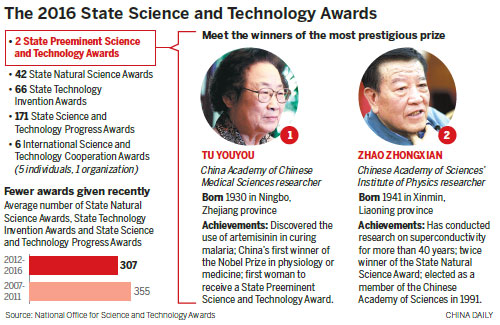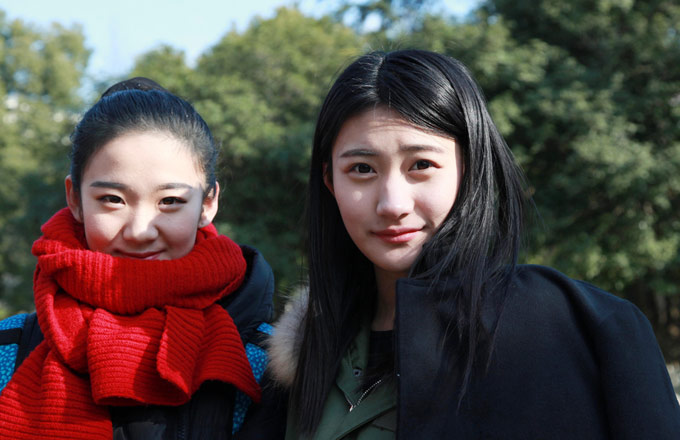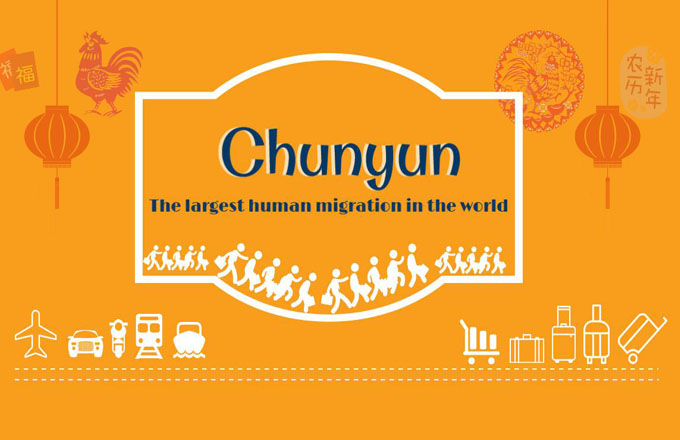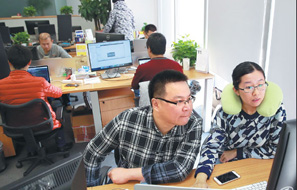Light shines on brilliant minds

Awards recognize innovators in such fields as medicine, physics and technology, called vital for nation's progress
President Xi Jinping presented the State Preeminent Science and Technology Award to Tu Youyou, co-winner of the 2015 Nobel Prize in physiology or medicine, and physicist Zhao Zhongxian, recognizing the country's booming innovation on Monday.
Tu is best known for discovering artemisinin, derived from the traditional Chinese medicine qinghaosu, used to treat malaria. She is the first woman to receive the national award. Zhao Zhongxian, an academician at the Chinese Academy of Sciences, has spent four decades researching superconductors.
Twenty-seven scientists have received the nation's top science and technology award since it was established in 2000. It comes with a prize of 5 million yuan ($721,000).
The award is one way the government encourages fundamental research, Premier Li Keqiang said at the ceremony. Scientists should be dedicated to patient research since China is in greater need of scientific progress than at any other time, he said.
Li paraphrased a Chinese proverb, saying, "(Scientists) could stay silent for a decade, (but they should) try to amaze the world with a single brilliant feat."
The premier vowed to protect intellectual property rights, which he said is crucial to support innovation. The nation will have sustainable development only by relying on innovation, he said.
Li also expressed gratitude to foreign scientists and scholars who have contributed to China's scientific progress. China welcomes foreign scholars for entrepreneurship and innovation, he said, adding that the government will provide opportunities and facilities for international talent willing to work in China.
Five foreign experts, including Katharina Kohse-Hoeinghaus, a professor at the University of Bielefeld in Germany, and one organization received China's International Science and Technology Cooperation Award during the ceremony. The Chang'e-3 project shared the Top Science and Technology Progress Award with 19 others.
Research into the standard for high-speed wireless communication known as TD-LTE got the State Science and Technology Progress Special Award.
Cao Shumin, the scientist who led TD-LTE research, said that the telecommunications technology has been developed under fierce international competition, and China has played a leading role.
"We are facing great challenges in whether devices we've developed will be accepted by the market," she said, adding that the government has played a key role in supporting the development of 4G technology.
Zhao, one of the two top prize winners, said at the ceremony that the government has created a good environment for scientists to concentrate on their studies.
Science and technological progress is of key importance to social development and national security, he said.


















